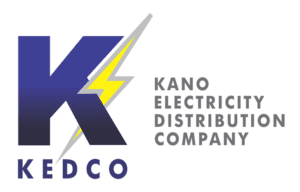AfDB identifies challenges in Nigeria’s LPG growth rate
The African Development Bank, (AfDB) has set up the SEFA-funded COP26 Rapid Response Facility to provide short-term, demand-driven advisory support to Nigeria, Egypt, Kenya, Morocco, and South Africa.
This facility aims to offer solutions for grid integration of variable renewable energy generation and storage, electric mobility, bridging policy and regulatory gaps, and providing potential business models and financing mechanisms.
The Bank, observed that Nigeria experienced a 60 per cent increase in liquefied petroleum gas (LPG) or cooking gas prices in 2022.
This has pushed more Nigerians to switch from using LPG for cooking to firewood or other polluting fuels while those who maintained the use LPG, continued to experience price hike.
This information is contained in AfDB’s May 2023 Annual Development Effectiveness Review report which highlighted the significant rise in prices of diesel and LPG, over 50 per cent and more than 60 per cent respectively, in countries like Nigeria, thus resulting in higher expenses for vulnerable households.
The report also noted that efforts to expand access to energy in African countries faced setbacks in 2022 due to the economic fallout from Russia’s invasion of Ukraine, slow recovery from the COVID-19 pandemic, and their combined impact on energy and commodity markets and supply chains.
The National Bureau of Statistics (NBS) in its April 2023 report revealed that Nigerians paid N4,642.27 to refill a 5kg cylinder, representing a 22.15 per cent increase compared to April 2022’s price of N3,800.47.
Equally, refilling a 12.5kg cylinder cost N10,323, reflecting a 26.44 per cent increase from N8,164.37 in April 2022.
These prices pose challenges for Nigerians already grappling with a 22.22 per cent inflation rate and limited resources, thereby hindering progress in achieving energy access and security in the country. It has been understood that key factor contributing to Nigeria’s high LPG prices is the lack of infrastructure, making large-scale LPG production nearly impossible.
Despite contributions from Nigeria’s Liquefied Natural Gas Limited (NLNG), the country still relies on LPG imports, which fall short of meeting the demand. Until Nigeria can improve its infrastructure, this challenge is likely to persist, resulting in elevated LPG prices, which ultimately stem from policy and investment issues.
The AfDB report also acknowledged significant progress in Africa’s energy access, with population coverage increasing from 42 per cent to 56 per cent in seven years. Nevertheless, 600 million Africans still lack access to electricity, representing three-quarters of the world’s unserved population.
Nigeria, along with countries such as the Democratic Republic of Congo (DRC), Madagascar, Ethiopia, Tanzania, and Uganda, has a significant portion of its population lacking access to clean cooking facilities.
Recognizing the importance of energy access, the AfDB emphasized its role in the sustainable development agenda for Africa. Affordable, reliable, modern, and renewable energy is crucial for improving the quality of life, enhancing health and education, and fostering job creation, businesses, and trade.
The report also emphasized the use of renewable energy sources to mitigate the effects of climate change, making it a crucial element in the fight against global warming.




